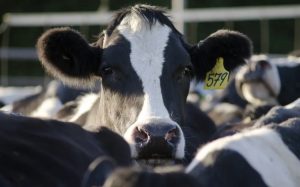
The Global Dairy Trade price index fell 5% to 1163, the lowest level since February 2021. It follows a 5% decline at the previous fortnightly auction.
Dairy prices have slid from record levels in March this year, as disruption from Covid-19 lockdowns in China, an economic crisis in Sri Lanka and the Russia-Ukraine conflict weigh on demand and buyers baulk at higher prices in an environment of high inflation and constrained consumer spending.
“Bidders weren’t willing to chase prices higher,” said NZX dairy insights manager Stuart Davison. “This result could see Fonterra updating their milk price forecast for the current season, considering the scale of the price slide over the last two auctions.”
Still, Davison said the auction drew good participation from all regions, and described demand as “limp” rather than “completely dead”.
“This trend is likely a result of the current outlook of the wider economy for some buyers, with uncertainty of the future still front and centre for most, creating an unwillingness to be burdened with heavier than required pipelines of product at this point in time,” he said.
The whole milk powder price index fell 6.1%, with the average price dropping to US$3544 (NZ$5661) a tonne. Whole milk powder has the most impact on what farmers are paid.
Among the other price indices, skim milk powder dropped 5.3%, butter slid 6.1%, buttermilk powder fell 9.2%, anhydrous milk fat shed 1.4% and cheddar slipped 0.7%.
Global dairy prices set the price Fonterra and other processors pay farmers for their milk.
In June, the co-operative lifted its forecast farmgate milk price for the current season to between $8.75 and $10.25 per kilogram of milk solids. The $9.50 per kgMS mid-point, which farmers are paid off, would set a new record.
























